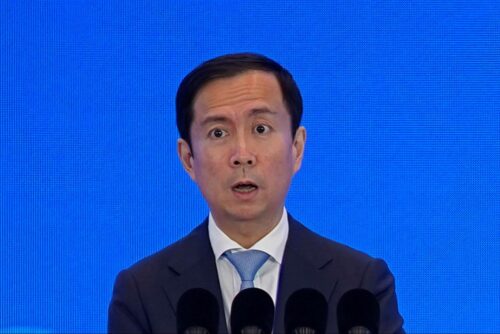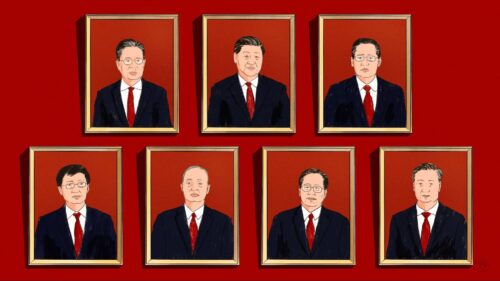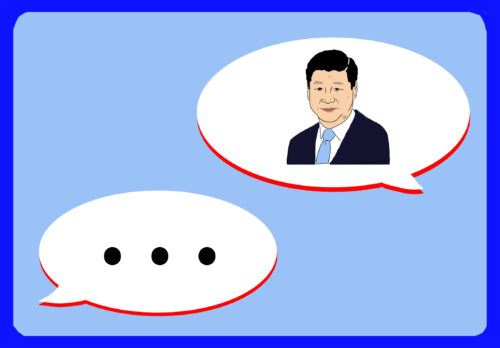China affirms tech crackdown will continue with more regulations rolling out through 2025
China’s State Council and the Chinese Communist Party’s Central Committee released a document that confirms what was already pretty clear: Beijing intends to continue strengthening regulation on a wide range of sectors of the economy for years to come.

Even as investors grapple with the implications of a flurry of regulatory moves on Chinese technology companies that accelerated last month, more keep coming.
- As The China Project has recorded in its tech crackdown tracker, after government actions already hit industries such as fintech, ecommerce, and education, state media have recently signaled that other sectors, including video streaming and even online insurance, might be in the crosshairs.
- On August 10, one of the biggest outside investors in Chinese tech, Japan’s SoftBank, sounded a note of caution as Chief Executive Masayoshi Son said his company will “resume” its investing in China once it has “a bit better view” on how regulatory action against the country’s tech firms is playing out.
The more active regulatory approach is here to stay, according to a joint document (in Chinese) issued yesterday by the Communist Party’s Central Committee and State Council.
- The document’s title could be translated as “2021-2025 Implementation Outline for Building Law-Based Government” — and as that implies, the document affirms Beijing’s intentions to roll out more laws and more thoroughly enforce existing regulations for a wide range of sectors for the next five years.
- Most of the laws mentioned in the document, including on antitrust, and sectors, including fintech, have already been widely understood to be priorities for Beijing.
- Still, the document “said authorities would ‘actively’ work” on new legislation in areas “including national security, technology and monopolies” and strengthen law enforcement in areas from “food and drugs to big data and artificial intelligence,” per Bloomberg.
- The inclusion of food and medicine is new, Gary Dugan, the chief executive officer at the Global CIO Office, told Bloomberg.
See also:
- China to step up scrutiny of online insurance sector – media / Reuters
The China Banking Regulatory Commission (CBRC) is going to target the country’s growing online insurance sector, according to Shanghai Securities News (in Chinese).
“Shares of Zhong An Online Property and Casualty Insurance…one of the leading online insurance platforms co-invested by Alibaba Group Holding’s Ant Group, Tencent…and Ping An Insurance Group, tumbled as much as 9% in the morning session.” - Chinese tech firms are trying to “self-correct” to avoid “regulatory fury” / Reuters
“KE Holdings, China’s largest platform matching buyers and sellers of real estate, is one such example…This year it quietly shut down its VIP services that promised fast-turnarounds for property sellers in exchange for exclusive listings and which had featured prominently on its popular Lianjia and Beike apps.” - The latest front in China’s campaign against Big Tech? Entertainment. / Sixth Tone
- Probe into Didi Chuxing data use may lead to management reshuffle / SCMP (paywall)
- Smart-car makers will be required to store key data locally / Bloomberg (paywall)






